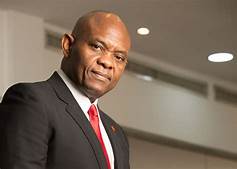Extending Beyond Wall Street: Abuse of Shareholder Jets by African Bank Executives

While most of the spotlight remains on North American and European financial giants, executives at leading African banks and funds have faced their share of turbulence over the questionable use of shareholder funds for extravagant corporate jets unrelated to reasonable business needs.
At Standard Bank, civil society groups questioned if directors flying privately to golf tournaments abroad at shareholders’ expense met good governance duties. Even Investec managers had to justify significant personal aircraft usage for wine tastings and holidays abroad despite the bank’s environmental sustainability commitments.
In East Africa, disclosures at leading Tanzanian bank CBA showed nearly half the flying hours on its $3 million Avanti jet accruing from Directors’ private excursions unrelated to business, including undisclosed weekend getaways and family vacations costing investors millions annually without clear benefit.
Even smaller banks like Togo’s Ecobank International have faced allegations of governance lapses, with its CEO repeatedly flying on shareholders’ potential dividends to his hometown abroad primarily for leisure, including birthday parties with politically connected friends.
In Nigeria, not less than four banks have at least two private jets each, even as other CEOs in other sectors use high-end ones such as the Bombardier and the Embraer. For most, an average cost to the shareholders will be about US$40m for purchase and an estimated cost between US$3.7m and US$3.9m annually.
Aviation analysts estimate dozens more African financial institutions likely have unchecked corporate jet policies, resulting in shareholder capital regularly being used to subsidise senior executives’ lavish travel. Lack of transparency, weak board oversight and absence of deterrents make abuse prevalent even at banks preaching business ethics.
So, while only a few cases may attract wide scrutiny, the systemic issue spans much more widely, warranting urgent reform across Africa’s banking sector. Unfettered access to luxurious private travel unrelated to business needs or shareholder interests remains a persisting governance concern for many more institutions beyond the major pan-African banks highlighted initially.
In an era of climate change, economic turbulence, and societal focus on sustainability and governance, unlimited private jet perks for bank and fund executives will likely face growing shareholder dissent. Calls are increasing for financial corporation boards to step up guardrails on misuse, ensure prudent policies that put shareholder interests first, and improve transparency through meticulous usage classification and reporting.
While luxury corporate jet travel may not vanish from Wall Street’s executive culture anytime soon due to deeply embedded notions of prestige and privilege, investors now expect stronger justification aligned with company business needs before passing extravagant bills to shareholders. For financial institutions hoping to attract investment and top talent based on strong governance and ethics, reforming controversial executive perks could be the first sincere step on a long road ahead to regain society’s trust and confidence.
The days ahead will see more questions being asked as demand for improved disclosures and accountability increase




